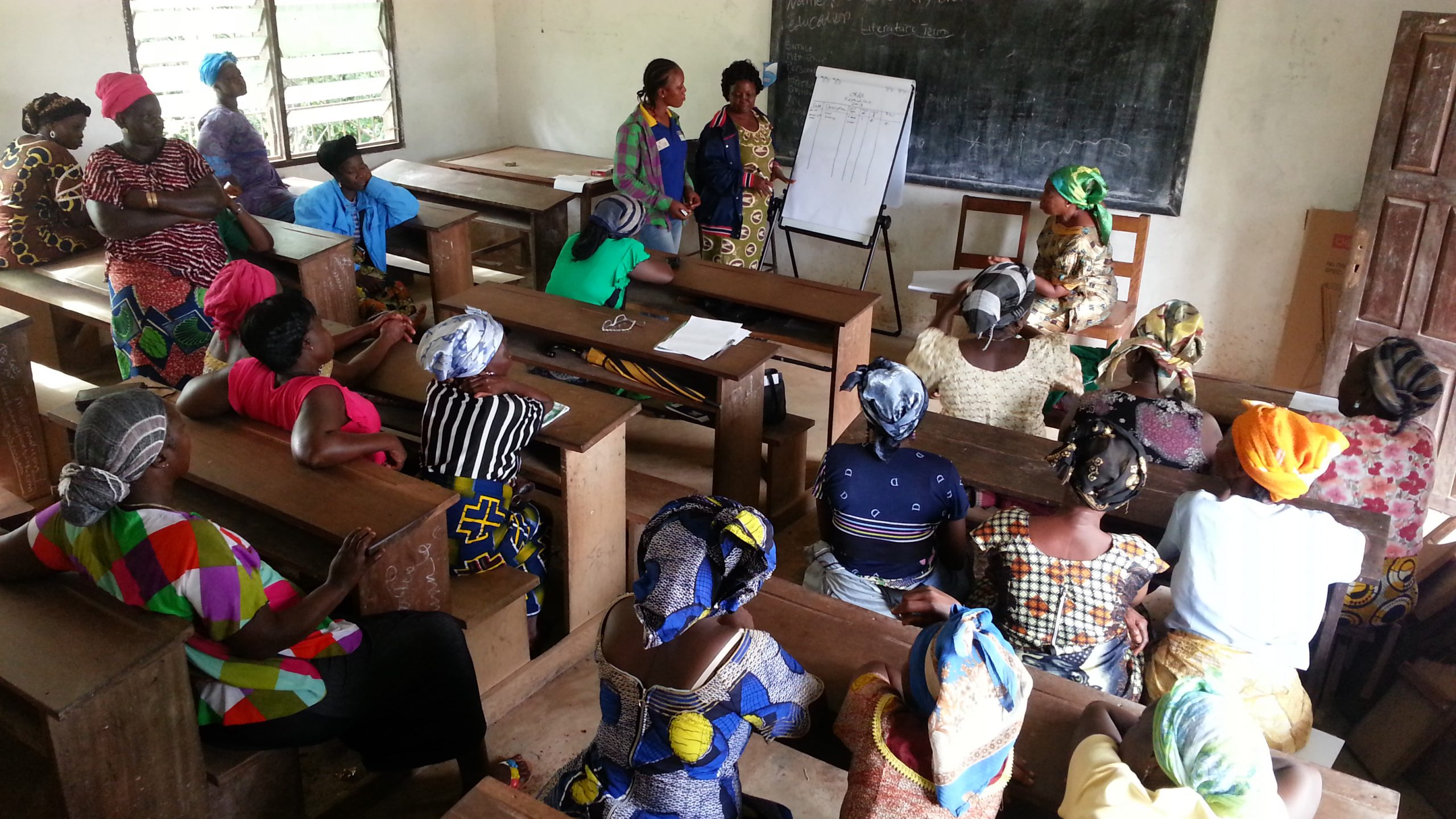
Fostering Resilience and Food Security among Ebola-Affected Communities (ERRP)
RELATED NEWS
Summary
In March 2014, Liberia identified its first confirmed cases of Ebola, which eventually spread to the Bong and Nimba counties – the current implementation areas for ACDI/VOCA’s Liberia Agricultural Upgrading, Nutrition and Child Health Program (LAUNCH). The situation rapidly escalated into a crisis, and in August 2014, the government declared a State of Emergency.
In response to the health emergency, ACDI/VOCA is implementing a short-term emergency response under the Ebola Recovery and Resilience Program (ERRP) that provides a range of basic safety nets to increase household and community resilience and food security. A total of over 100,000 beneficiaries will be reached with cash transfers, cash for work, and an agricultural input voucher scheme. Cash assistance will help the most vulnerable populations (children 6-23 months and pregnant and lactating women) to meet their immediate dietary requirements, as well as basic non-food needs while increasing their ability to preserve their existing household assets.
Objectives
The goal of ERRP is to improve the recovery and resilience of Ebola-affected communities and households to food security shocks. To achieve this goal, the program includes the following objectives:
- Provide a temporary safety net to minimize the need of households to resort to destructive coping strategies during the lean season period via cash transfers (target: 10,276 Households) and cash for work (target: 2,400 Households)
- Improve the capacity of households to prepare for the next agricultural production season through an agricultural input voucher scheme (target: 10,275 Households)
Activities and Approaches
- Cash Transfers – ERRP is delivering monthly cash transfers to help meet beneficiary household food and non-food needs. The cash transfer activity targets households with children 6-23 months with symptoms of malnutrition, pregnant and lactating women, Ebola Virus Disease (EVD)-affected households with a deceased family member, EVD survivors, and members of the Title II program’s credit and savings groups to help replace savings lost.
- Cash for Work – ERRP will implement a cash for work activity to provide beneficiaries with income to stimulate the rural economy and enable them to make direct food purchases from local markets. ERRP will work with communities to establish work road rehabilitation committees to supervise the initial road rehabilitation and, after the activity concludes, continue to work with the Department of Public Works to maintain the rehabilitated roads. The cash for work activity will focus exclusively on the rehabilitation of farm-to-market roads and will target able-bodied community members.
- Agricultural Input Voucher Scheme – ERRP provided vouchers to cash transfer beneficiary households through community-level agricultural input fairs to purchase agricultural inputs from agro-input dealers, including improved seed varieties and tools such as wheel barrows, boots, and other inputs to help households address the negative impact of EVD on production.
Anticipated/Achieved Results
- The cash activities are intended to result in immediate cash relief and provide 12,676 participating households that are severely stressed as a result of the Ebola outbreak with an income safety net. The injection of cash will stimulate local markets and strengthen the purchasing power of households at risk of experiencing acute food shortages.
- The agricultural input voucher fairs are expected to help stimulate the local economy, facilitate linkages between farmers and local/national vendors to increase the access of 10,275 households to agricultural inputs, increase production for consumption and dietary diversity at the household level, and increase the availability of food in local markets.
Funder: USAID Food for Peace
Contact: Carlos Soto, csoto@acdivoca.org




